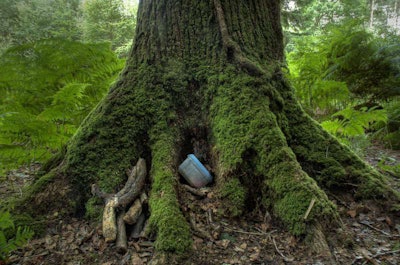
Hours of downtime on the road may be becoming few and far between, but if the chance arises, why not try out a mental and physical challenge?
The hobby has been around for a while, but the increased of electronics and smartphones has made the geocaching easier to handle for both beginners and experts.
Geocaching is basically a scavenger hunt amongst strangers. Participants use coordinates, GPS devices, and web hosts to find caches at locations around the world. The hobby was started by Dave Ulmer near Portland, Ore., in 2000. Geocaches can be anywhere from a small tin to a shoebox or larger. The caches usually contain small trinkets and a log book to keep up with who finds it.
According to Geocaching.com, there are more than 1,565,854 geocaches worldwide!
Employ the use of sites, ones tailored for truckers and for the general public, to help you find your next location while out on the road. Once arrived on location, use your eyes and the clues from the sites to find the cache.
Tips to begin your adventure:
- To start, you will need a GPS, or a smartphone with navigation capabilities.
- For beginners with a smartphone, consider downloading Geocaching Intro app, to help guide you through your first time. It’s available for free for IPhone and Android users.
- Bring along a paper and pen, and a small trinket to leave in the geocache. For many caches, the take something, leave something rule applies so the cache gets refreshed often.
- Remember that finding a geocache can sometimes involve walking, hiking, and intensive searching, so come prepared! This is all part of the adventure, though!
For the more advanced geocaching aficionados, consider making one of your own and leaving it somewhere on a route you regularly drive. Just make sure the container you use is water and weather-proof, and include a small notebook or piece of paper so searchers can log their finds. After figuring out a location to place it in, register the cache on one of many available web hosts.

To keep up with where the items you left go, Groundspeak is a company that sells tracking tags for geocaches. Participants can attach a tag to a trinket in the geocache and track its journey. The tags sell for anything from $5 to $20.
As the hobby has evolved, games are now part of the geocaching experience. By joining geocaching websites, participants are able to compete to find geocaches first or in certain lengths of time.
All this geocaching leaves one in mind of treasure hunts, so a few reminders before you go out on your next adventure:
- Each state has different laws pertaining to treasure hunting, make sure you check them out before heading out with your metal detector.
- Be safe! Geocaching requires venturing off-road into unknown territory. Protect yourself and be wary of your surroundings.









